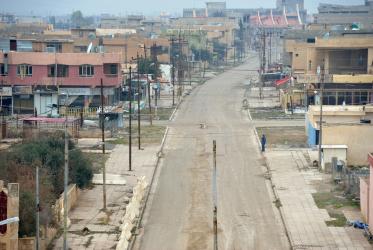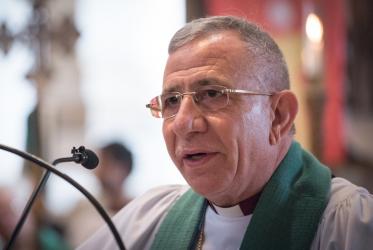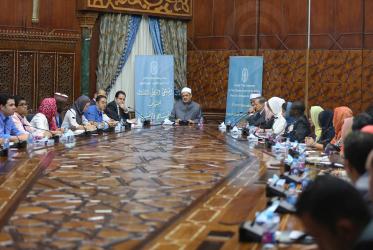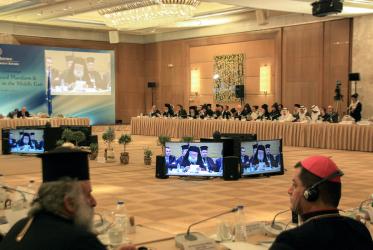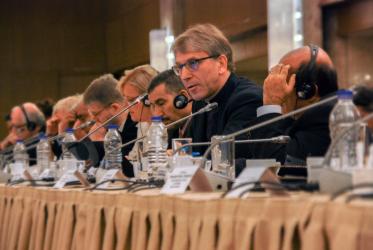Displaying 81 - 100 of 190
Praying for one another, even when we disagree
02 March 2017
Bishop Younan awarded Niwano Peace Prize
22 February 2017
Strong bridges needed more than ever
21 December 2016
WCC general secretary reflects on peace in Palestine and Israel
20 September 2016
Hielke Wolters: Apostle of mission strategies
01 August 2016
Symposium focuses on religion, violence, extremism
04 February 2016
Common prayer in Geneva responds to acts of violence
16 November 2015
International conference addresses challenges in the Middle East
22 October 2015
